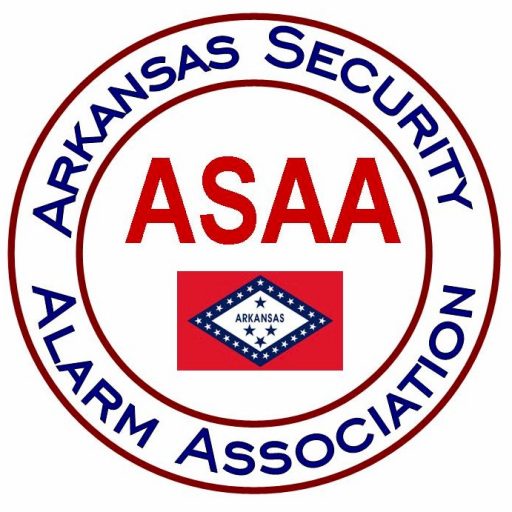
Level I Course
The ASAA / NESA Level I course begins with several general topics including: overview of the industry, ethics, building construction, safety, law, codes and standards, general electricity, microprocessors and tools. It prepares technicians for system installations and service repairs by covering the basic steps used in our industry including: documentation, site survey, component location, cabling and testing.
The course is two days of instruction and a half a day for review and testing.
This course satisfies the requirements for Alarm Agents (sales) and Technicians.
The exam is 50 multiple choice questions and the student has two hours to complete it.
Fire Installation and Wiring Codes
The ASAA / NESA Fire Installation and Wiring Codes course focuses on NFPA 72 and covers: Fundamentals, Fire Signatures, Effects and States, Codes & Standards, AHJ, Fire Alarm Equipment Overview, Initiating Devices, Signal Transmission, Controls, Power, Notification Appliances, Signaling Systems, Ancillary Circuits and Documentation.
Fire Installation and Wiring Codes is based on: the Arkansas Fire Prevention Code, NFPA 72 and NFPA 70. Students are encouraged, but not required, to bring these books with them for discussion. We also discuss many of the licensing requirements for managers.
This course is two days of instruction and a half day for review and testing.
This course satisfies one of the requirements for Managers. It is also a great course for all technicians that deal with fire alarm systems, but is NOT required for them.
The exam is 30 multiple choice questions and the student has two hours to complete it..


Electronics
The ASAA / NESA Electronics course covers parts of a circuit, types of circuits, measuring electricity, applying Ohm’s law, conversions, load calculations and voltage drop. It is an in depth course on trouble shooting and using a meter.
This course is one day of instruction and a half day for review and testing.
This course satisfies one of the requirements for Managers. It is also a great course for all technicians, but is NOT required for them.
The exam is 20 multiple choice questions and the student has one hour to complete it..
Combined for Convenience
The Arkansas Security Alarm Association teaches the Electronics (occasionally referred to as “Level 2A) and Fire Installation and Wiring Codes (occasionally referred to as “Level 2B” ) courses consecutively. We do this to make it more convenient for both the student and the instructor. These courses are still two separate courses. If you take both courses, you will need to pay for both courses. It is possible to pass one and fail the other. You will then only need to re-take the failed course.

Daily Schedule
Classes begin at 8:00 a.m. sharp!
The below times are approximate and will vary based on class size, general knowledge of the students, and the flow of the class.
Level I usually lasts until 4:30-5:00 p.m. the first two days of class (Tuesday and Wednesday for classes held in Little Rock, Friday and Saturday for classes held in Fayetteville and Fort Smith). The 2-hour test usually begins about 9:00 a.m. on the third day.
Fire Installation and Wiring Codes usually begins at 8:00 a.m. The first two days of the fire class (Tuesday and Wednesday for Little Rock, Thursday and Friday for Fayetteville and Fort Smith) usually run until 5:00 – 5:30. The third day of class is for review and testing. The goal is to complete the course by noon of the third day. Electronics will begin immediately following the Fire Installation and Wiring Codes exam.
Electronics begins immediately following the Fire Installation and Wiring Codes exam and usually lasts until 4:30-5:00 p.m. but may go later, as it is a day and a half class. There is practical homework that is reviewed the second day of the class. Following the review of the homework on the second day (the fourth day if taking both the fire and electronics courses), there is a one-hour exam. It usually begins about 8:30-9:00 a.m. but may start later.
What to Expect at an ASAA Class
ASAA / NESA courses are designed to give each student an introduction in the covered topic. For example, the Level I course does not cover and test on using a drill. It does show why having a drill is important and how it is used in our industry.
The ASAA uses top quality instructors. All of our instructors have been teaching the required training for the state for at least five years. Several of our instructors have thirty years experience in the electronic security industry, all have at least ten.
ASAA / NESA students are expected to attend all of the courses. Unless otherwise noted, all classes begin promptly at 8:00 am and will last until the instructor dismisses for the day. There may be homework assigned in any of the courses. The student will be responsible for ALL the material in their book and on the slide presentation. A test score of 70% or greater, plus a clean report from the on-line proctoring company (if taken on-line) constitutes passing the course. All exams will be multiple choice.
The ASAA will try and have results back to the student within five business days. However, on-line students may have to wait a bit longer, as we do not submit less than five exams to be graded.
Students with special needs should contact ASAA at least ten (10) days before the beginning of class to make any necessary arrangements.
Other questions should be directed to:
Jordon Brown
104 North 13th
Fort Smith, AR 72901
(479)424-8108 voice
(479) 785-1155 fax
jordon@aralarm.org
